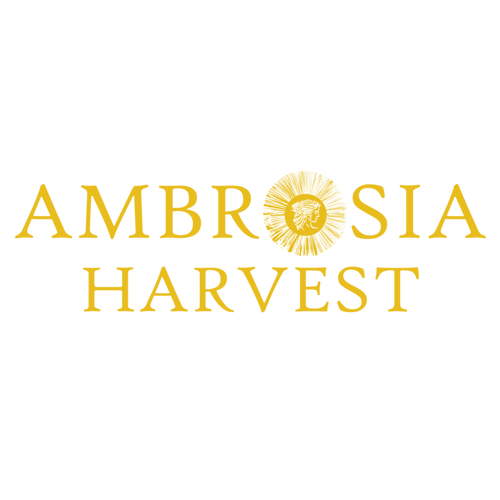Cordyceps: Your Natural Energy Shot

Benefits of Cordyceps Mushrooms (Based on Clinical Trials)
Key Nutritional and Health Benefits:
Cordyceps mushrooms are prized for their potential health benefits, particularly in traditional Chinese and Tibetan medicine.
Energy and Stamina Boost- Increases ATP Production: Cordyceps enhance the production of adenosine triphosphate (ATP), the energy molecule in cells, improving oxygen utilization and boosting energy levels.
- Improves Physical Performance: Often used by athletes to improve stamina and endurance.
- Supports Oxygen Uptake: Cordyceps can help improve lung capacity and oxygen efficiency, benefiting individuals with respiratory conditions such as asthma or bronchitis.
- May Reduce Inflammation in Airways: Their anti-inflammatory properties can assist in easing respiratory discomfort.
- Enhances Immune Response: Cordyceps contain polysaccharides and antioxidants that strengthen the immune system.
- Fights Pathogens: They may increase the activity of natural killer (NK) cells, aiding the body in fighting infections.
- Reduces Oxidative Stress: Cordyceps are rich in antioxidants that combat free radicals, potentially slowing aging at a cellular level.
- Supports Skin Health: Their ability to boost circulation and oxygenation can lead to a healthier complexion.
- Boosts Libido: Cordyceps have been used traditionally to improve sexual health and combat fatigue, enhancing libido in men and women.
- Supports Adrenal Health: They may help regulate cortisol levels, improving stress resilience.
- Helps Manage Diabetes: Cordyceps may improve insulin sensitivity and help stabilize blood sugar levels.
- Improves Circulation: By enhancing oxygen utilization and circulation, Cordyceps can benefit overall cardiovascular health.
- Lowers Bad Cholesterol (LDL): Some studies suggest they can reduce LDL cholesterol levels.
- Eases Chronic Inflammation: Beneficial for conditions like arthritis or inflammatory bowel disease (IBD).
- Protects Against Cellular Damage: Antioxidants in Cordyceps combat oxidative stress in the body.
- Supports Chemotherapy Recovery: Cordyceps may help reduce the side effects of chemotherapy by boosting energy and immune function.
- Inhibits Tumor Growth: Some studies indicate they may slow the growth of certain cancer cells.
Key Compounds in Cordyceps:
- Cordycepin: A compound known for its energy-boosting, anti-inflammatory, and immune-enhancing properties.
- Polysaccharides: Known for supporting the immune system and overall vitality.
Lu, T., Zhou, L., Chu, Z., Song, Y., Wang, Q., Zhao, M., Dai, C., Chen, L., Cheng, G., Wang, J., & Guo, Q. (2024). Cordyceps sinensis relieves non-small cell lung cancer by inhibiting the MAPK pathway. Chinese Medicine. Retrieved from https://cmjournal.biomedcentral.com/articles/10.1186/s13020-024-00895-0
Monteiro, H., et al. (2020). Cordyceps spp.: A review on its immune-stimulatory and other biological potentials. Frontiers in Pharmacology. Retrieved from https://www.frontiersin.org/articles/10.3389/fphar.2020.602364/full
Kim, K. H., et al. (2016). Cordyceps militaris improves tolerance to high-intensity exercise after acute and chronic supplementation. Journal of Dietary Supplements. Retrieved from https://thefungifolks.co.uk/cordyceps-clinical-trials/
Zhu, Z. Y., Yao, Q., Liu, Y., et al. (2012). Highly efficient synthesis and antitumor activity of monosaccharide saponins mimicking components of Chinese folk medicine Cordyceps sinensis. Journal of Asian Natural Products Research, 14(5), 429-435. Retrieved from https://pubmed.ncbi.nlm.nih.gov/22428587/
Huo, X., Liu, C., Bai, X., Li, W., Li, J., Hu, X., & Cao, L. (2017). Aqueous extract of Cordyceps sinensis potentiates the antitumor effect of DDP and attenuates therapy-associated toxicity in non-small cell lung cancer via IκBα/NFκB and AKT/MMP2/MMP9 pathways. RSC Advances, 7(60), 37733-37741. Retrieved from https://pubs.rsc.org/en/content/articlelanding/2017/ra/c7ra04716a
Hirsch, K. R., Smith-Ryan, A. E., Roelofs, E. J., Trexler, E. T., & Mock, M. G. (2017). Cordyceps militaris improves tolerance to high-intensity exercise after acute and chronic supplementation. Journal of Dietary Supplements, 14(1), 42-53. https://doi.org/10.1080/19390211.2016.1203386
Das, G., Shin, H. S., Leyva-Gómez, G., Prado-Audelo, M. L. D., Cortes, H., Singh, Y. D., Panda, M. K., Mishra, A. P., Nigam, M., Saklani, S., Chaturi, P. K., Martorell, M., Cruz-Martins, N., Sharma, V., Garg, N., Sharma, R., & Patra, J. K. (2021). Cordyceps spp.: A review on its immune-stimulatory and other biological potentials. Frontiers in Pharmacology, 11, 602364. https://doi.org/10.3389/fphar.2020.602364
Yu, X., Mao, Y., Shergis, J. L., Coyle, M. E., Wu, L., Chen, Y., Zhang, A. L., Lin, L., Xue, C. C., & Xu, Y. (2019). Effectiveness and Safety of Oral Cordyceps sinensis on Stable COPD of GOLD Stages 2–3: Systematic Review and Meta-Analysis. Evidence-Based Complementary and Alternative Medicine, 2019(1), 4903671. https://doi.org/10.1155/2019/4903671
Chen, Y. C., Chen, Y. H., Pan, B. S., Chang, M. M., & Huang, B. M. (2017). Functional study of Cordyceps sinensis and cordycepin in male reproduction: A review. Journal of Food and Drug Analysis, 25(1), 197-205. https://doi.org/10.1016/j.jfda.2016.10.020
- Tags: Cordyceps
0 comments


